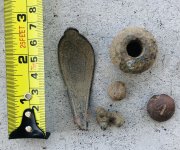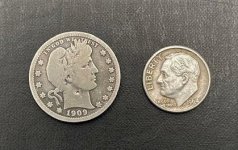Blind.In.Texas
Bronze Member
- Thread starter
- #21
Thank you Stroover that wonderful insight. The key word I find from your presentation is 'consistent'.
I troubleshoot a lot in my field and the one thing I have learned above all else is this: the ANSWER is always obvious once the in-obvious is removed, and it is always the last thing you find to make it work.
Great points and I also would like to hear your successes in your endeavours anddetails from anyone on how they accomplish what they do. Troubleshooting for the ANSWER NEVER changes from issue to issue. Only the details vary.
Thanks to all...
I troubleshoot a lot in my field and the one thing I have learned above all else is this: the ANSWER is always obvious once the in-obvious is removed, and it is always the last thing you find to make it work.
Great points and I also would like to hear your successes in your endeavours anddetails from anyone on how they accomplish what they do. Troubleshooting for the ANSWER NEVER changes from issue to issue. Only the details vary.
Thanks to all...





